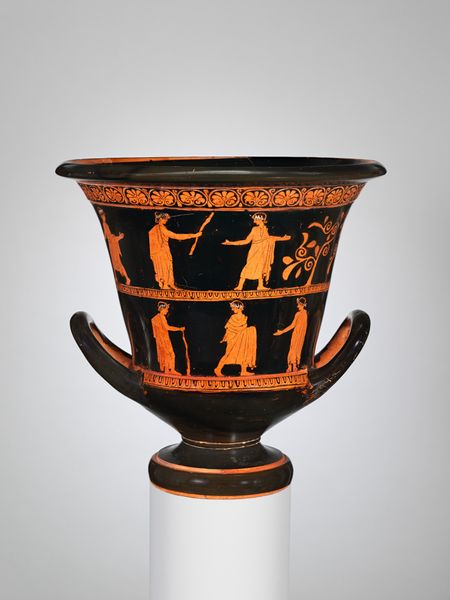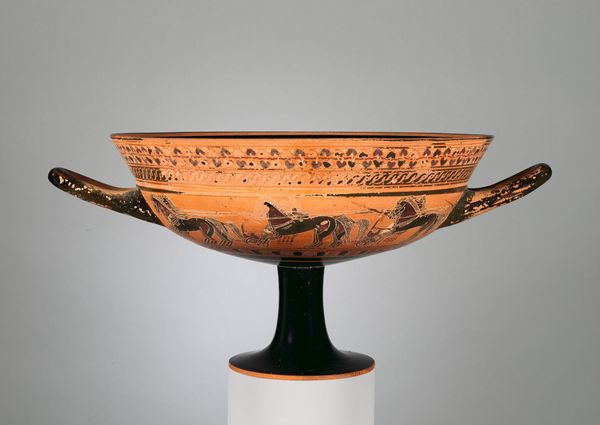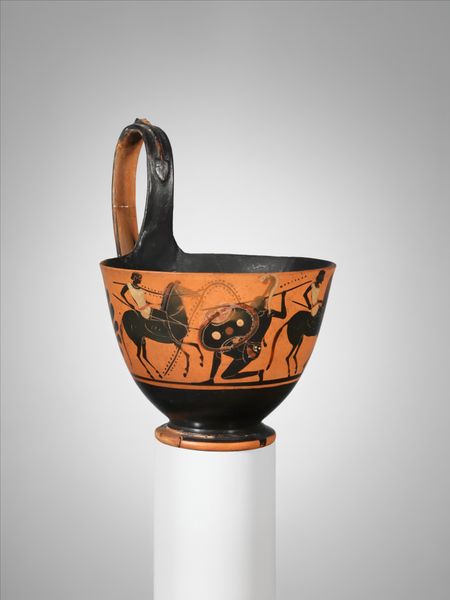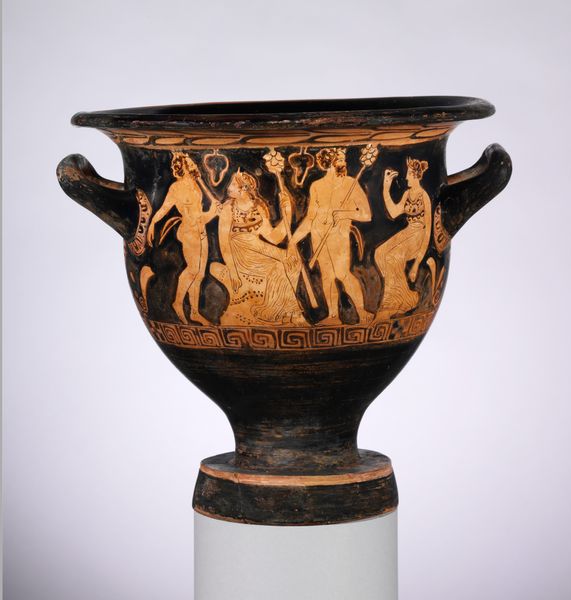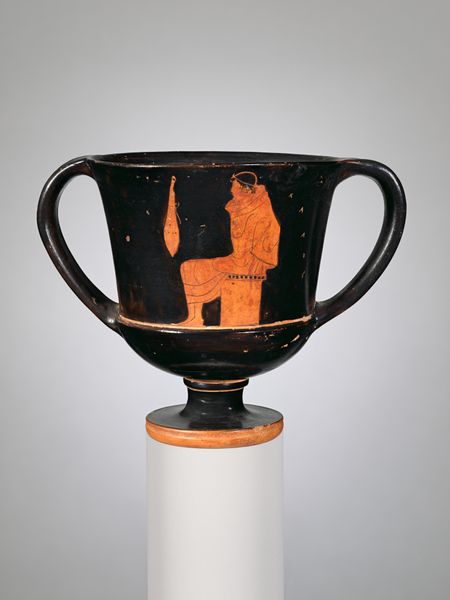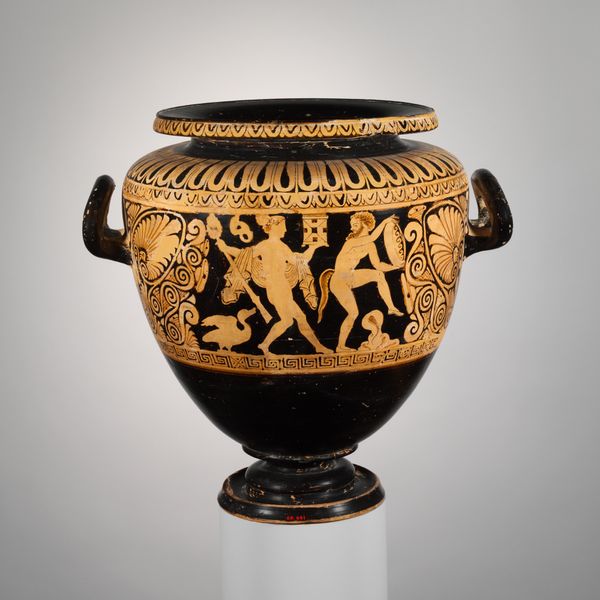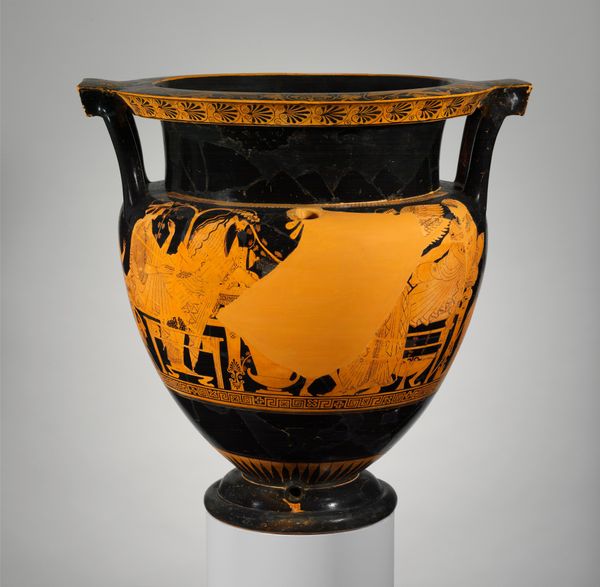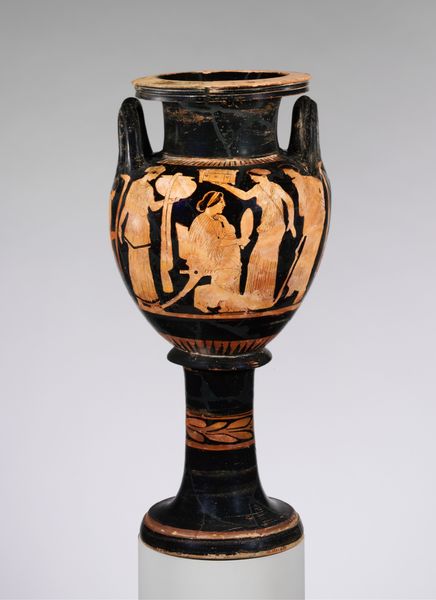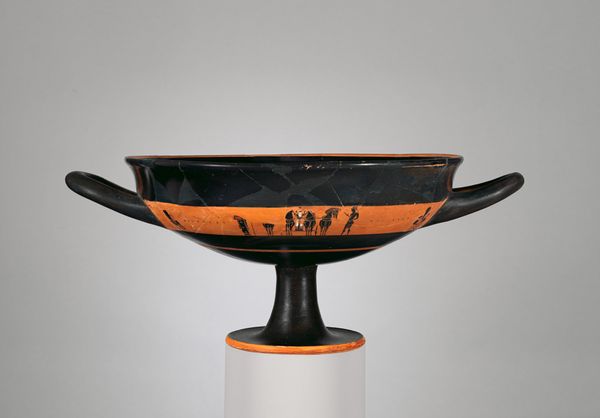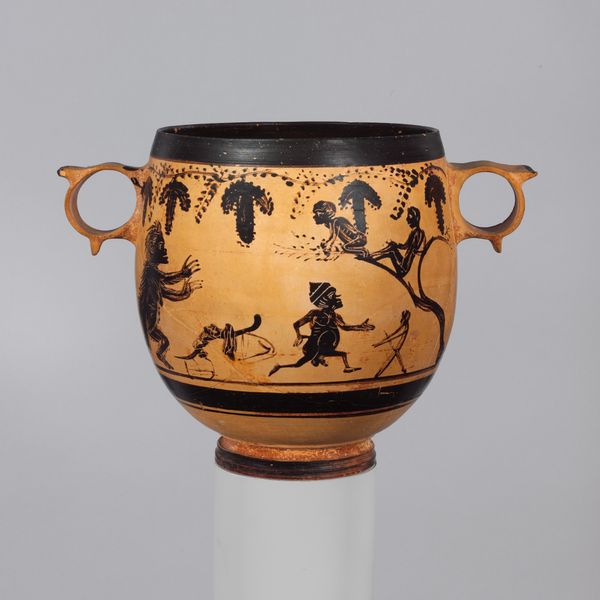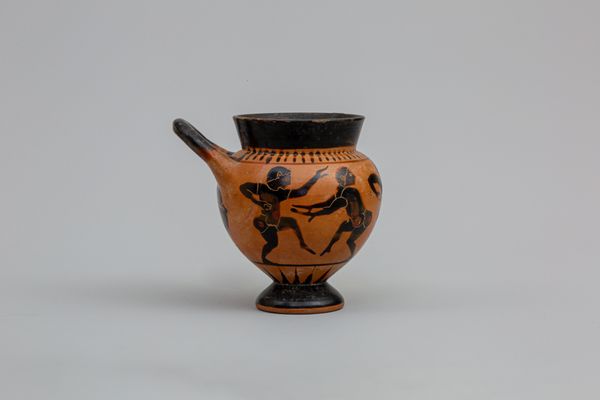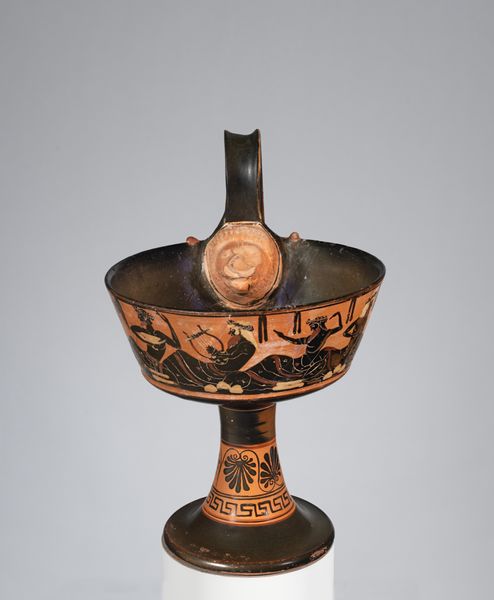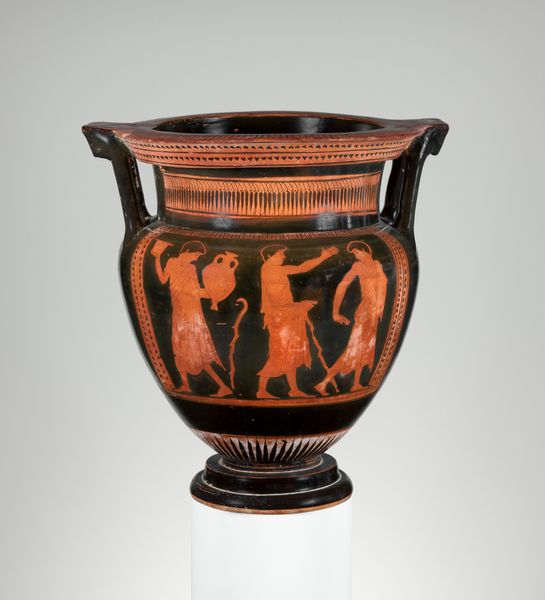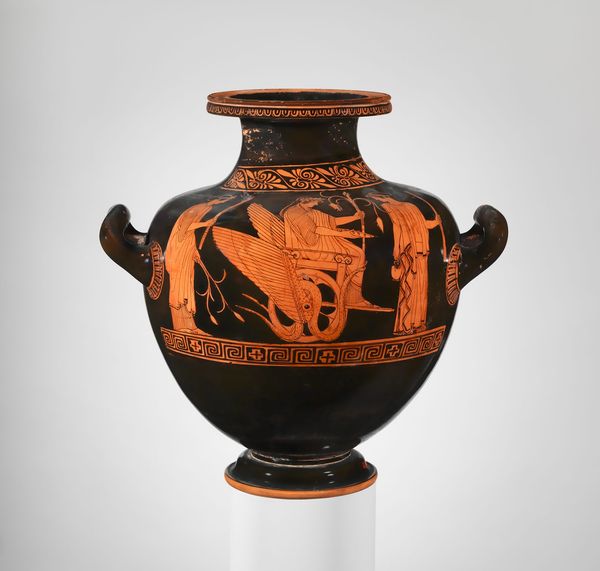
drawing, ceramic, earthenware
#
drawing
#
narrative-art
#
pottery
#
greek-and-roman-art
#
ceramic
#
figuration
#
earthenware
#
ancient-mediterranean
#
ceramic
#
earthenware
#
history-painting
Dimensions: H. 6 3/16 in. (15.7 cm) diameter 9 13/16 in. (24.9 cm)
Copyright: Public Domain
Editor: Here we have a terracotta kylix, a Siana cup, dating back to 560 BC. It's currently held at the Metropolitan Museum of Art. The figures painted on the cup seem to be frozen in a dramatic moment. How do you interpret this work within its historical context? Curator: It’s essential to view this kylix not merely as decorative, but as a cultural artifact embedded within a complex social structure. The depiction of conflict—warriors clashing—wasn't just about glorifying battle. Consider who might have been drinking from it: aristocratic men. The imagery reinforces a patriarchal ideology. Does this representation perpetuate or challenge power dynamics in your view? Editor: I see what you mean. It does feel like it’s reinforcing those existing structures, showing men in positions of power and strength. I guess I hadn't really considered how something like a drinking cup could do that. Curator: Exactly. This reinforces the idea that art is never neutral. The very act of choosing which stories to depict and how they are depicted reflects the values and power structures of that society. How do you think its function as a drinking vessel informs its reading? Editor: It makes me think about ritual, maybe social gatherings that upheld specific norms or performances of masculinity and class. So this wasn’t just about aesthetics. Curator: Precisely. It's about performative identity, class, and the social reinforcement of those ideals. Examining its form alongside the narrative imagery helps us deconstruct the complexities of Athenian society. It forces us to reckon with a history that isn’t always heroic but is invariably human. Editor: That’s a really interesting perspective. I definitely learned to look beyond the surface of the artwork and to consider how it participated in shaping the social and political climate of ancient Greece.
Comments
No comments
Be the first to comment and join the conversation on the ultimate creative platform.
